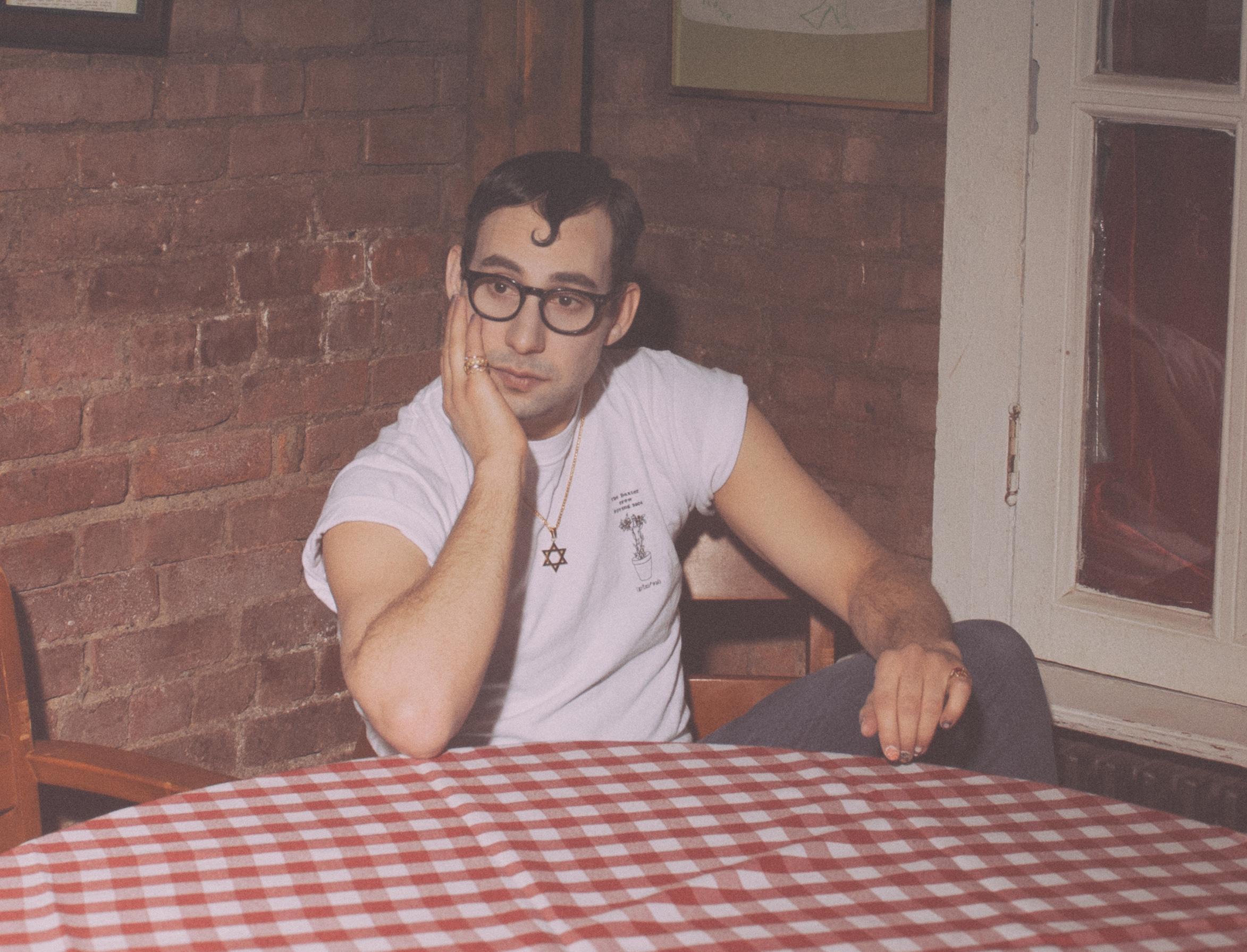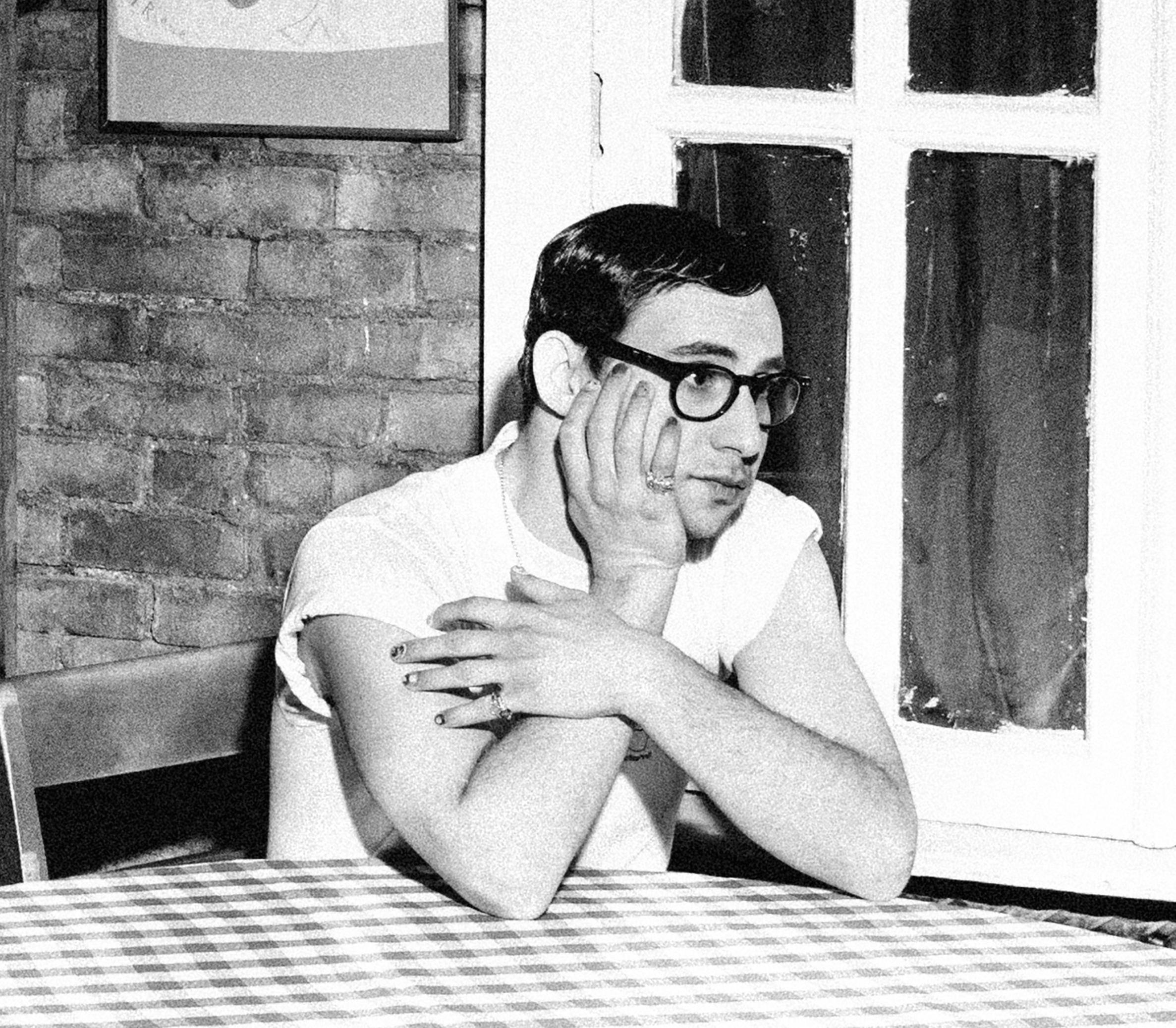Jack Antonoff interview: 'I feel as though I've had a few lives already'
Bleachers frontman on producing some of the biggest pop artists on the planet, the death of Tom Petty, and why he loves working with women

“It’s been one of the most exciting years I’ve had.”
In an unusual room at a hotel in London, with narrow walls and mirrored panels that seem to stretch like a scene from Inception, Jack Antonoff (who “literally just watched that movie”) picks at some food laid out for him from the other side of a wide wooden desk.
Speaking to him again, two years after a brief chat at a Bleachers gig in Camden, is a refresher of his habit of stopping abruptly after a sentence because he knows exactly what he wants to say. Instead of rambling as he tries to work out the answer in his head there’s this outpouring of an incredibly eloquent, perfectly-formed answer, born from an almost-intimidating intelligence that he translates into sharp, contemporary pop music.
The 33-year-old artist is in London for a Bleachers gig at Koko, which is a considerable step up from the cramped, low-ceilinged venue that is Dingwalls. He’s also seeing St Vincent, whose new album MASSEDUCTION he produced, at Brixton Academy later in the evening.
There is an element of “finally” in the way he addresses the growing acknowledgement of his work. As recently as May this year, there was an article claiming that, even if you haven’t heard of him, you “probably love his music”; it seems to have taken the world a long time to clock onto just quite how extraordinary the work Antonoff has been doing is.
An outsider (this writer included) could assume this has been the busiest year of his life, given that he’s produced and written for new releases by three of the biggest and best pop artists in the world: St Vincent, Lorde, and Taylor Swift.
“No,” he responds simply. “They’ve always been pretty busy but people are paying more attention now. I feel as though I’ve had a few lives already.”
Making MASSEDUCTION was a life he spent with Annie Clark, the artist behind St Vincent. For Antonoff, a big part of making a record is understanding the vision the artist has and then protecting it at all costs.
“I’m very proud of it... it took a long time,” he says of that process. “Sometimes it was spilling out, other times it wasn’t at all. It was this very intense process of documenting what she [Clark] wanted to say.”
Antonoff has a gift where he can seemingly coax the deepest, most personal and complex emotions out of the artist he works with and guide it into an anthemic chorus or a beautiful series of piano chords. Lorde, who said her time working with the three-time Grammy Award winner pushed them “to make stuff that is better than either of us have ever done”, has experienced that first-hand. Her second album Melodrama was released this year to critical acclaim, and features one of 2017’s best songs, “Green Light”, which was written in Antonoff’s apartment in New York.
Lorde – real name Ella Yelich-O’Connor – has, on more than one occasion, been compelled to defend decisions about her career – such as when she parted with her manager in 2015 – to industry figures (often men) who assume they know better than her, the artist. So it was wonderful to see someone like Antonoff singing the highest possible praise both during and after the time they spent working together, ensuring that fans knew about the input she had on the production and writing process of Melodrama.
“I’m only interested in working people with this very clear vision,” Antonoff says. “That’s when it’s exciting, when you can help protect and work with that. If I was working with someone who didn’t know what they wanted to do I would just leave and do my own stuff. Everything changes, they all become very connected, you start to see things differently. There’s this constant volley of back and forth, it keeps things moving.”
Bleachers fans may have drawn a few links between his latest album and Melodrama. Where Lorde’s fans heard a distinct My Chemical Romance/“Welcome to the Black Parade” influence on her song “Liability”, Antonoff’s fans may hear a similar vibe on his song “Goodmorning” on his latest record Gone Now, in the way the piano chords descend with a kind of marching rhythm.
“It’s interesting how certain things to me live in totally separate worlds and then certain things share the same DNA,” he says. “It’s very funny, because in some ways being alone and making Bleachers records or working with someone on their album, they’re completely different experiences... but also exactly the same thing.
“I only work with one person, really. It’s a similar concept with different artists, where it can be an utterly different process, but then it is similar, because you meet someone, you believe in each other, and then you become this team and it’s like this non-human thing is happening in the room that you’re trying to harvest and protect.”
When he’s writing and recording with another artist, Antonoff says the same things to them as he would to himself.
“I say ‘don’t be a hero, be you’,” he explains. “‘Don’t be a projection of what you wish you were, be you’. No one gives a shit about what you hope they see you as, the best chance you make of connecting with other human beings is being honest. It doesn’t always have to be pretty. Don’t tell the story above the brutal one, tell the brutal story. So when I say these things in my head, it’s easier to say out loud.”
Recently he’s got a stronger hold on where he’s most helpful when it comes to working with another artist, and it happens to be in those intense, honest moments where he’s urging them to be as honest as possible. It’s a technique that results in the best kind of pop music, what he calls “pop that people like to write think pieces about”.
“Which is fine with me, that’s my favourite music,” he says. “I don’t see a separation between emotions and intellect in pop. To me it’s like food. There’s fast food and then all those amazing meals you can’t believe someone created. Pop music and songwriting is the same.”
Artists outside of the pop spectrum might sniff and claim the genre is dominated by songs about a girl or boy the singer fancies, but Antonoff disagrees.
“A girl you fancy is a pretty important thing,” he notes with a smile, then more seriously: “Those people are wrong, and they might not be listening close enough. Certain things are a little more surface, but there’s a lot of music out there with all this subtext and this whole other layer.
“That’s the great pop music: Bowie, Kate Bush, Joni Mitchell, The Beatles. Those are the songs that live forever because they say so much, so simply. That’s the ultimate goal, to say something to the world that is that complex and deep, but everyone gets it right away.”
A fan of Tom Petty, whose legacy left an indelible mark on pop culture, Antonoff recently performed a touching tribute to the late artist where he performed a beautiful version of “Don’t Come Around Here No More”.
That song changed his life, with the drum beats to the way Petty layered the vocals, but mostly, he says, from the feeling of wanting to move when you hear it: “You wanna get in a car, you wanna run. They’re written from these perspectives of ‘we’ve gotta get the f**k out of here’. And there’s always that chance that you don’t take the exit, you keep going.”
“That one really hurt a lot,” he says of Petty’s death. “First of all he was so young. So young. Also sometimes you don’t really realise until someone has gone how much they informed your life. How much they helped you believe in what you do.
“A lot of these people helped me believe in what I do, because they did it with such grace and poise and brilliance, and challenged themselves and challenged us as listeners. That’s what people don’t like about pop music – when it sounds like the person who made it thinks you’re stupid. Tom Petty never thought we were stupid, he put all these beautiful themes and intense concepts into his songs. He trusted us.”
Having Taylor Swift’s name attached obviously helped boost widespread conversation anyway, but the shock factor Antonoff brought to her song “Look What You Made Me Do”, with its interpolation of the Right Said Fred song “I’m Too Sexy”, was impressive regardless of whether you liked it or not. The way he smiles at the mention of it makes it feel as though they were giggling as they decided to add in when it was being made in his New York apartment.
“That came from nowhere,” he says. “We just had the idea. Nothing about that was planned. Nothing I do is really that planned. If I try to do that it sounds like shit. The shock was the point. That’s what it’s designed to do. It’s funny because we made it in my apartment. The song is such a moment and it came from two of us sitting there.”

Antonoff has been asked so many times about why he tends to work with women more than men, it’s a relief when he doesn’t eye-roll at the question this time round. Instead he’s generous with his answer, and seems genuinely interested in the reasons behind it.
“It is fair,” he says of the question. ”I’ve worked with men and it hasn’t worked as well. I grew up with sisters and a great mother and I’ve always been comforted by brilliant, powerful women in my life. That sensibility brings something out in me that is working. The truth is what happens when me and an artist get together, it’s matters of the heart that we’re talking about, the heart and soul of what’s happening, that process of making the records, comes from a different place. It’s fair that the press asks me about it a lot because it’s very interesting, and I wish I had some beautiful answer.
“The truth is I’m just grasping. I don’t know. I just know that what speaks to me the most is these people I’ve been working with. That Lauryn Hill and Joni Mitchell and Kate Bush and Fiona Apple are the records that, lyrically, meant the most to me growing up.” He pauses. “The best answer I can come up with is that I’m just starting to realise where I’m good, and not try to spread myself too thin. I don’t wanna do too much. I want it to count.”
‘Gone Now’, the new album by Bleachers, is out now on Columbia Records
Join our commenting forum
Join thought-provoking conversations, follow other Independent readers and see their replies
Comments
Bookmark popover
Removed from bookmarks